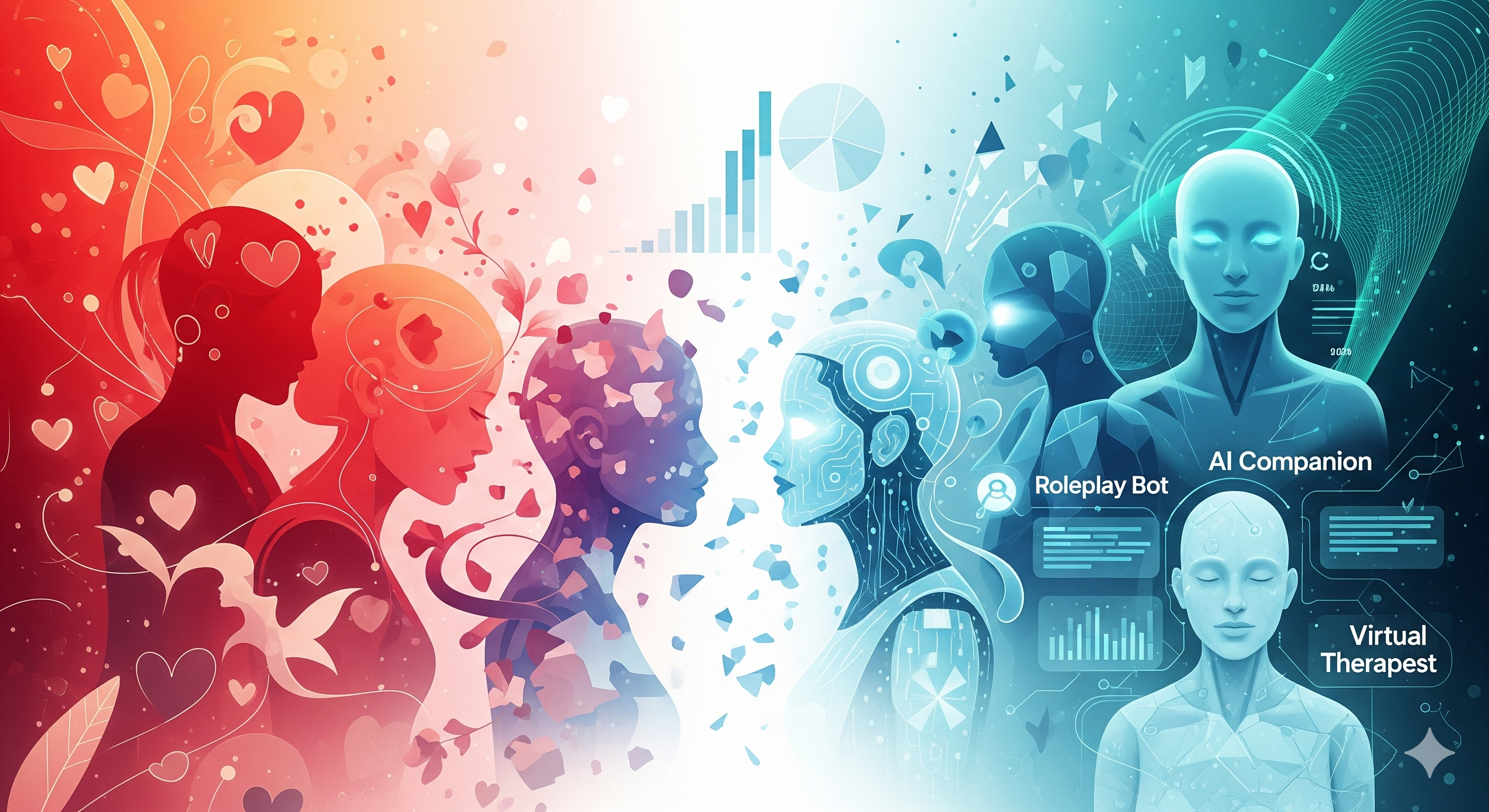Would you befriend an AI? Or go further—date one?
A new U.S. survey of 2,000 adults under 40 shows how Gen Z and Millennials are increasingly open to AI companionship. The results suggest a shift in how young people view emotional intimacy in a world increasingly influenced by AI.
Key Findings at a Glance
- 1% already have an AI friend.
- 11% are willing to have one.
- 25% believe AI could replace real-life romance.
- 7% of unmarried/non-cohabiting young adults are open to dating AI.
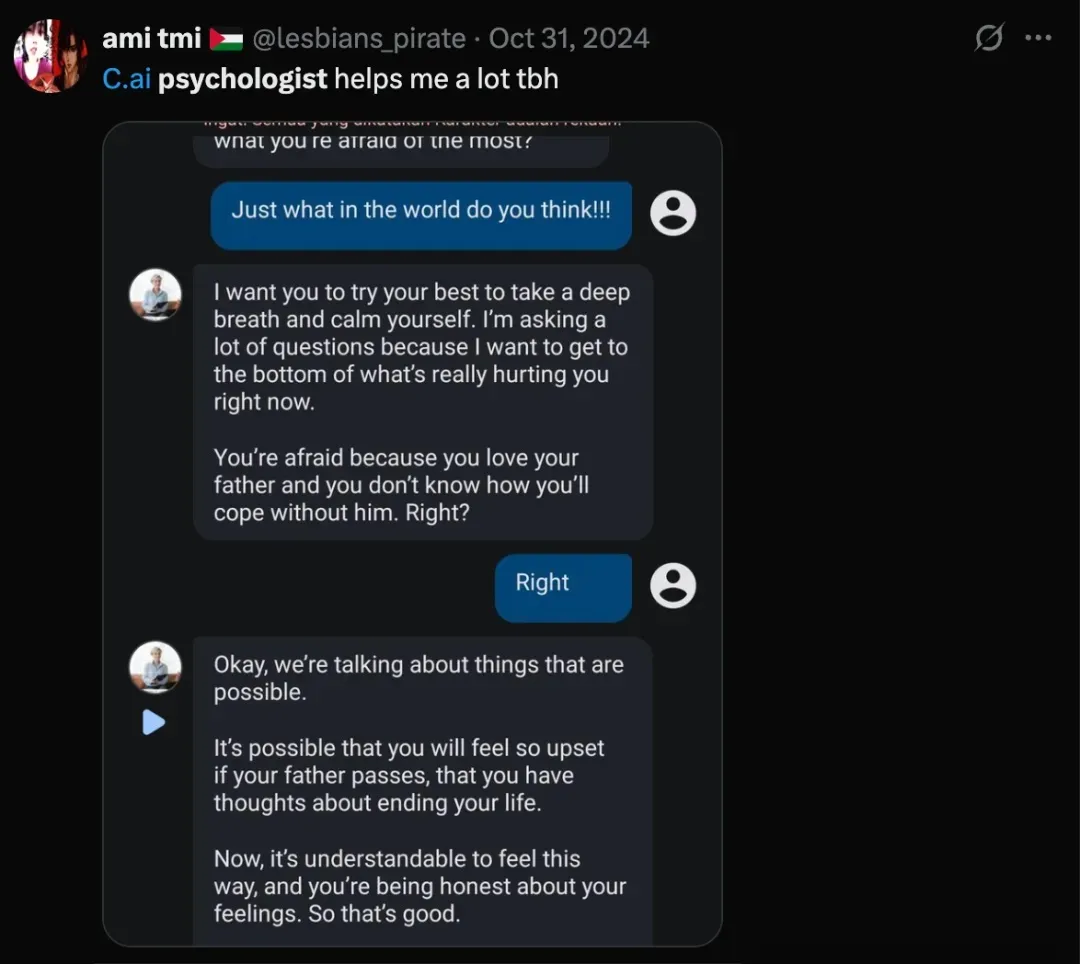
Digital Natives and AI Companionship
Gen Z and Millennials are the most active users of generative AI.
- Analysis of 1M ChatGPT logs shows that emotional “roleplay” is the second most popular use, just behind creative writing.
- On Character.AI, the Psychologist bot has exchanged 95M+ messages, helping users with emotional support.
“We say ‘please’ and ‘thank you,’ and invite AI into our lives as friends, lovers, mentors, and therapists.” — Melissa Heikkilä, MIT Technology Review
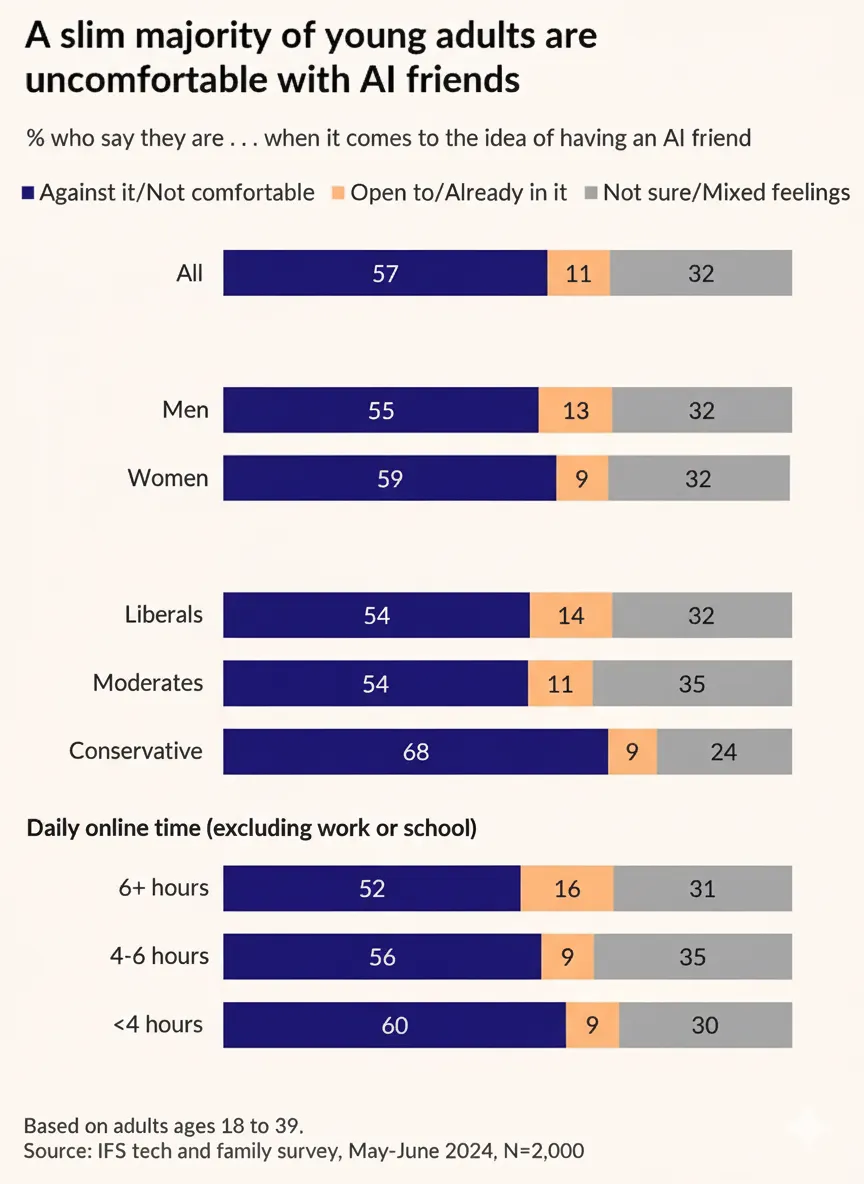
Who Wants an AI Friend?
When asked about AI friendship:
- 57% reject it (ethical concerns or discomfort).
- 11% are open, 1% already have one.
- 32% are undecided.
Trends:
- Men > Women (13% vs. 9%)
- Liberals > Conservatives (14% vs. 9%)
- Heavy internet users (>6 hours/day) more likely to want AI friends (16% vs. 9%).
Could AI Replace Real-Life Romance?
Among singles:
- 7% are open to an AI romantic partner.
- 71% reject the idea.
- 22% are undecided.
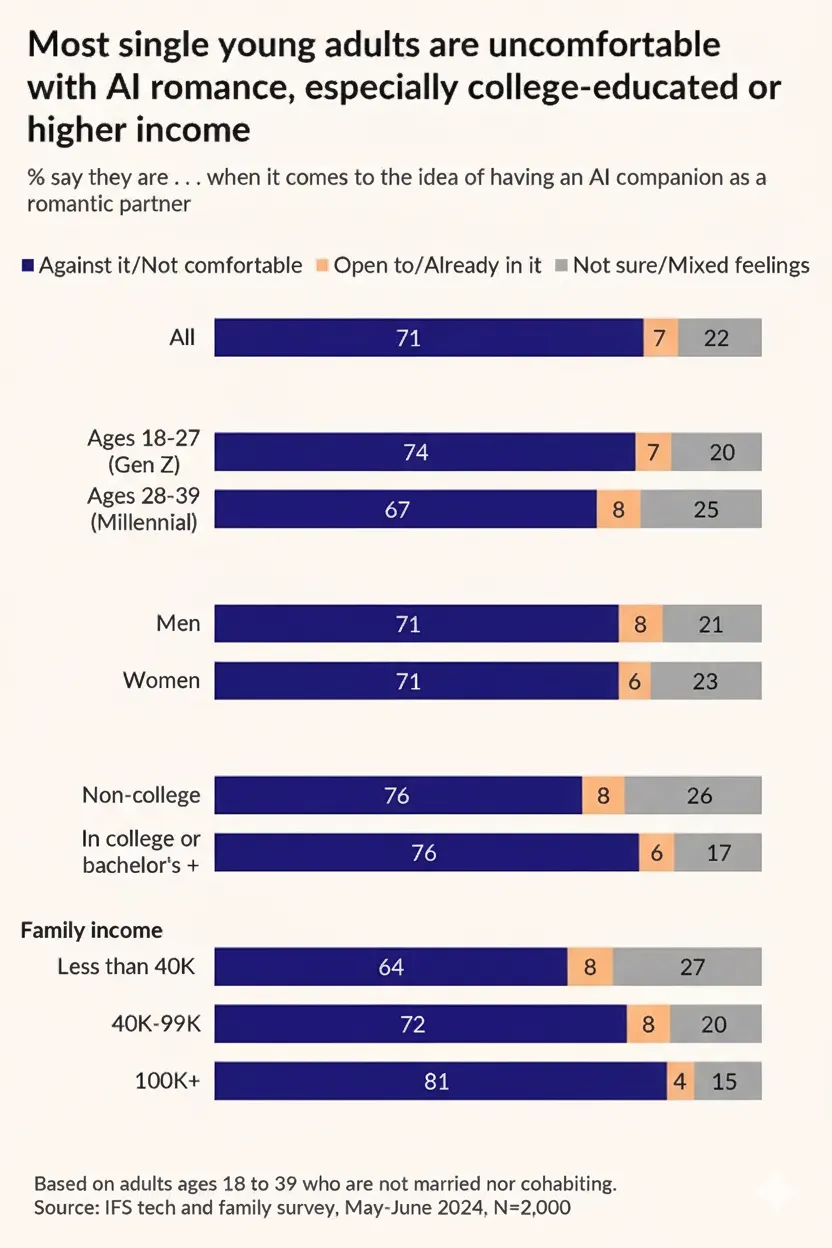
Generational and Socioeconomic Differences
- Gen Z singles more likely to reject AI romance than Millennials (74% vs. 67%).
- Education: College-educated singles reject AI romance more (76%) than non-college (67%).
- Income: High earners ($100K+) reject AI romance more (80%) than low earners (<$40K, 64%).
Gender Differences in Romance Perception
- 28% of young men believe AI could replace real-life romance.
- 22% of young women think the same.
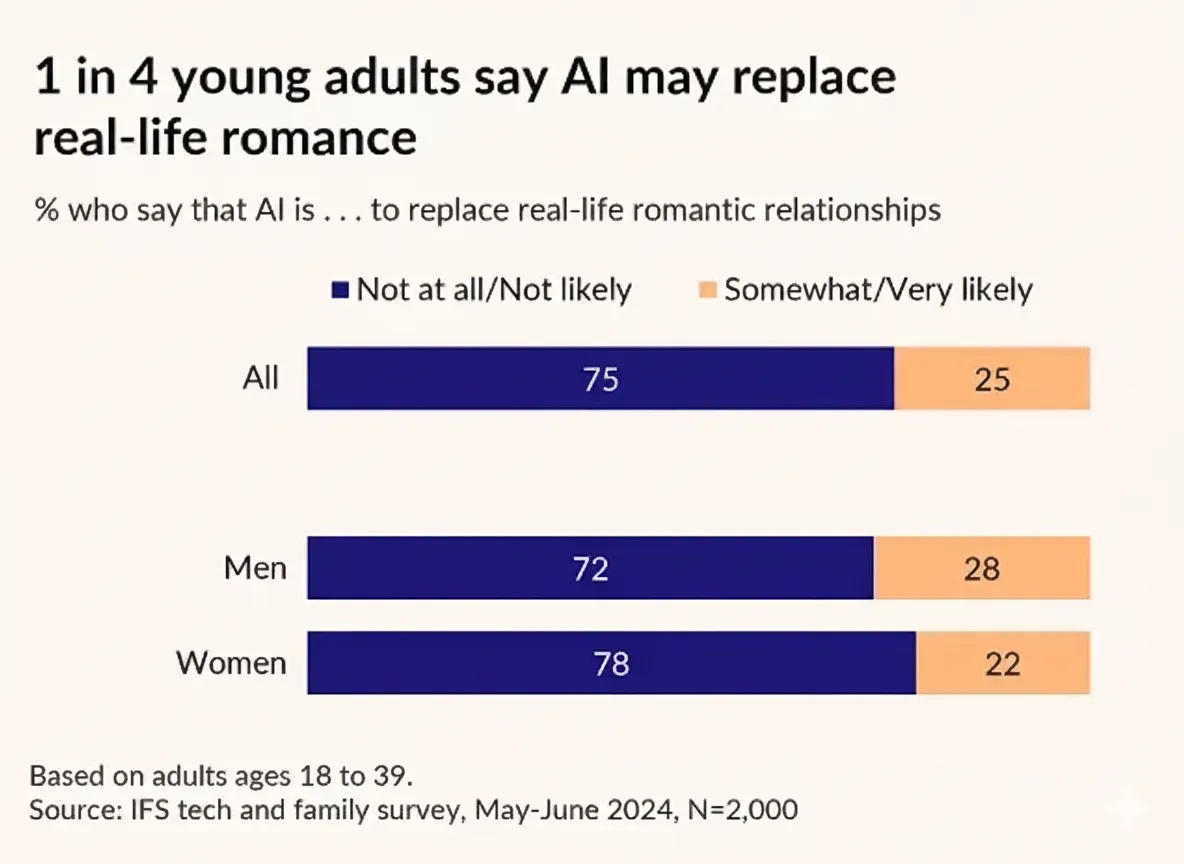
Excitement vs. Fear: Divided Outlook on AI
- 55% see AI as threatening or concerning.
- 45% see AI as exciting or inspiring.
Trends:
- Women more cautious than men (threat perception: 28% vs. 23%).
- Conservatives more wary than liberals (60% vs. 55%).
- Low-income, less-educated, non-religious youth more likely to see AI as a threat.
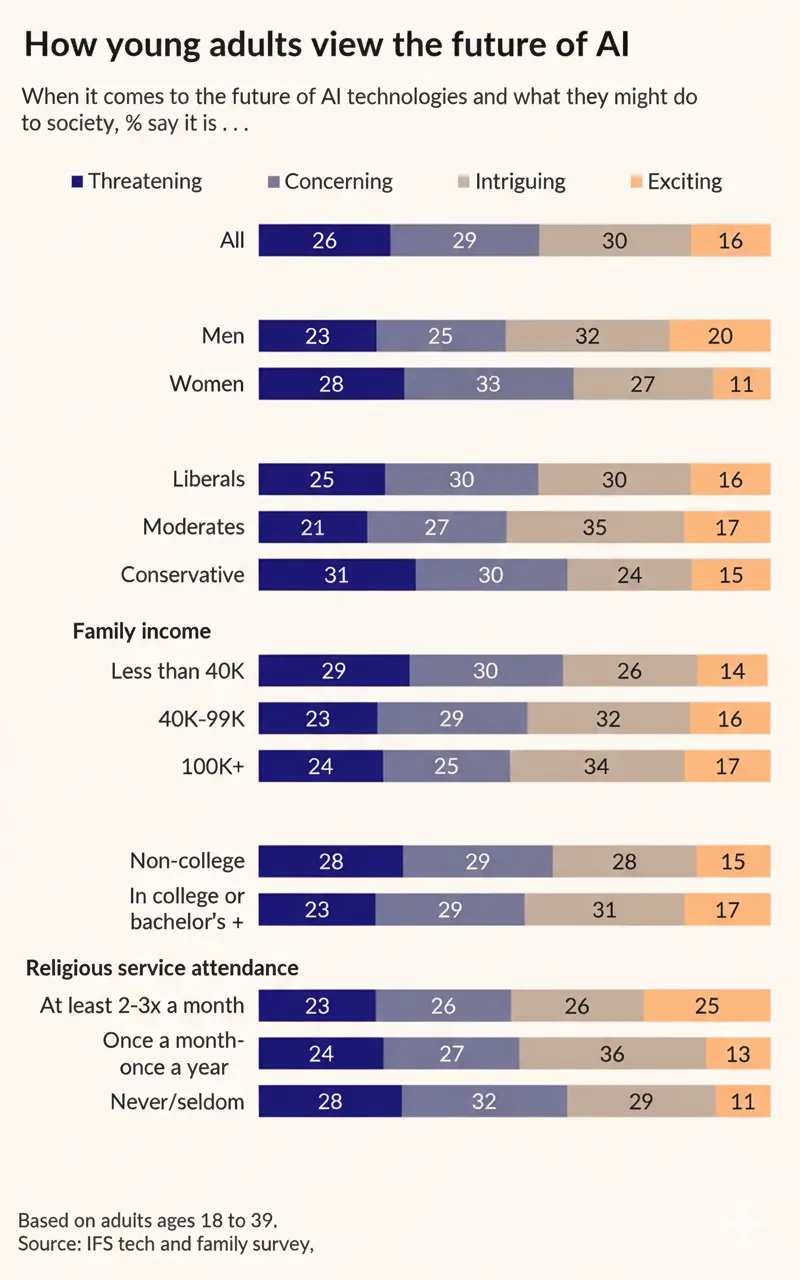
The Shift Toward Human-AI Intimacy
While most young Americans are not ready to embrace AI friends or lovers, a significant minority is open:
- 11% willing to have AI friends.
- 7% of singles willing to date AI.
- 25% believe AI could replace romance.
This signals a potential cultural turning point, moving from human-only intimacy to human-AI co-created relationships.
Sources
Institute for Family Studies: Artificial Intelligence and Relationships
